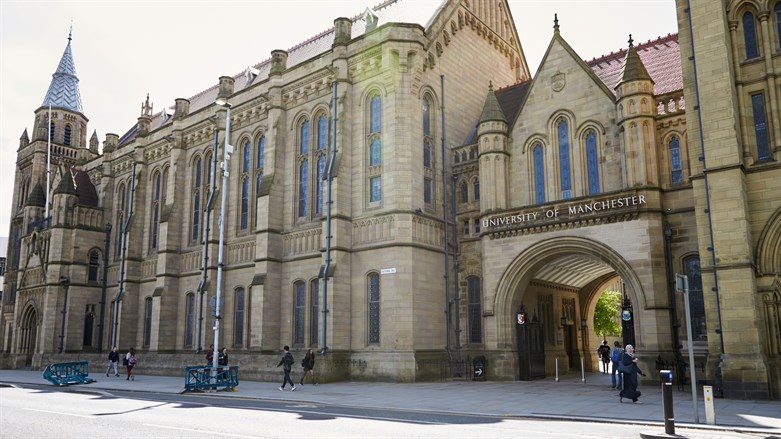Community Security Trust warns that antisemitism has spiralled out of control in the last two years at British universities.
A new report by the Community Security Trust (CST), the organization tasked with providing safety, security, and advice to the British Jewish community, found that antisemitism on London university campuses has risen 250 percent over the past two years.
During the same time period, the 2020/2021 and 2021/2022 academic years, campus antisemitism has increased 22 percent across the UK, the report also found.
The investigation was the second time that CST has exclusively examined the experiences of Jewish students along with staff and campus Jewish organizations in the UK.
The report noted that 150 antisemitic campus incidents were reported to CST in the last two academic years taking place on 30 campuses in the UK.
“Jewish life on campus is vibrant and there are a wealth of opportunities available that contribute to the overwhelmingly positive experiences of Jewish students at university. Most Jewish students will not encounter any antisemitism during their studies, but anti-Jewish hatred can still present a significant challenge for Jewish staff and students,” CST said in a blog post.
CST recorded 95 university-related antisemitic incidents in 2020/2021, the highest ever total for an academic year. The report said that 55 of the incidents took place in May 2021 during the conflict between Israel and Hamas.
“This was a period when national levels of anti-Jewish hate crimes increased, and university campuses were disproportionally affected,” CST said. “In times of heightened tensions such as this, universities are urged to consider the impact on Jewish staff and students and show an increased level of support.”
The 150 incidents listed in the report include seven threats against Jewish students, three of which were death threats, and three physical assaults. The other 140 incidents were described as “abusive behavior,” including verbal abuse, antisemitic graffiti on non-Jewish property, and online or offline written abuse.
“This report shows the challenges faced by students when universities, who have a duty of care to protect all students at university, do not always provide robust support to Jewish students or staff,” CST said.
“This is sometimes seen in how some academic institutions handle complaints of antisemitism. In some cases, CST found that investigations into complaints of antisemitism have been marred by slow responses, a breakdown in communication, a lack of impartiality or objectivity from investigating officers, and a failure to use the International Holocaust Remembrance Alliance (IHRA) working definition of antisemitism in an appropriate way.”
The report recommended that universities ensure a “ fair, independent and impartial complaints process” that includes external experts in antisemitism; respond timely to complaints from students and include progress updates; allow for anonymous reports of hate crimes and third party representation; and adopt the IHRA definition of antisemitism along with staff training on how to use the definition.
Calling for a “a wider understanding of the nature, language and impact of antisemitism on British campuses,” the report described campus antisemitism as a “running sore for decades.”
“These new findings show that far too many Jewish students suffer hatred and bias,” CST Chief Executive Mark Gardner said. “This study also reinforces last week’s National Union of Students’ own report into antisemitism, including the link between anti-Israel hatred and racist treatment of British Jews. Students’ unions and university authorities need to better support their Jewish students, taking concerns seriously and acting against antisemitism, whether it comes from students or academics.”
Source: Arutz 7
